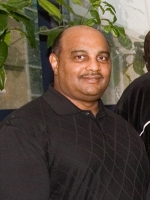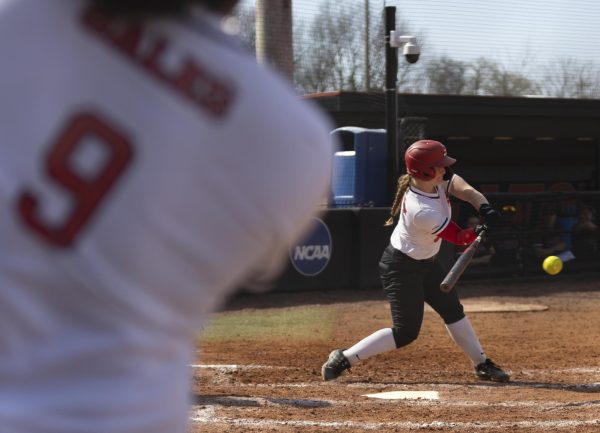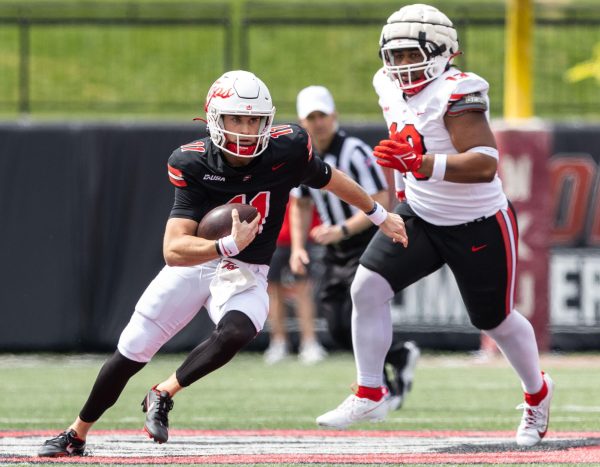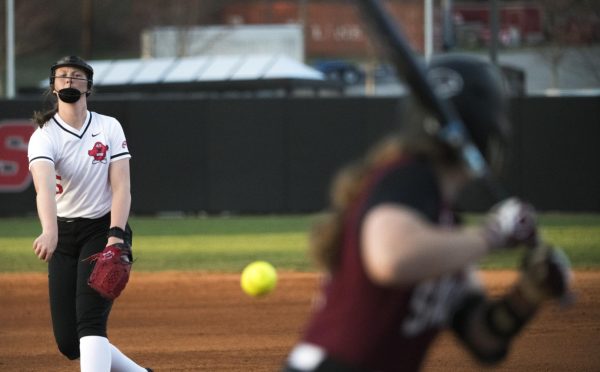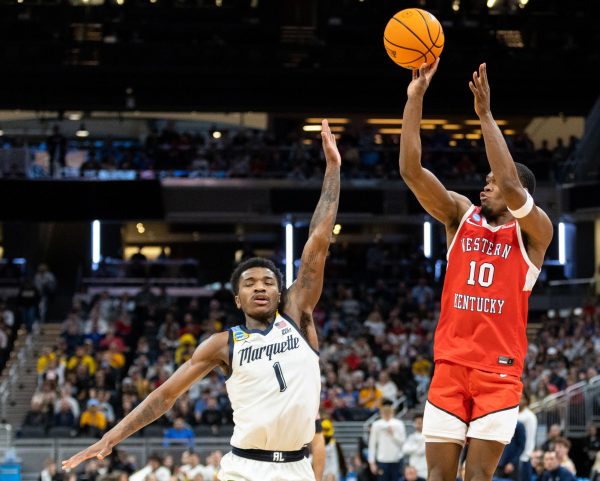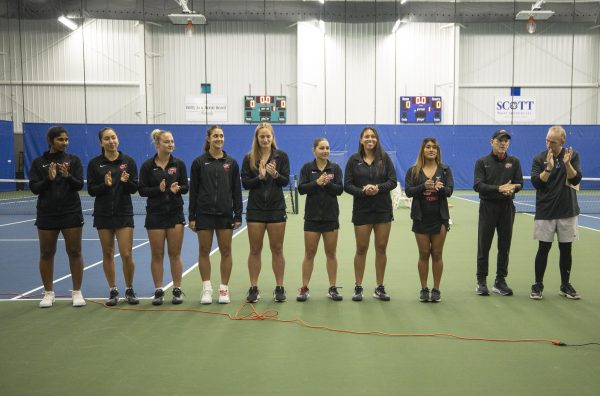‘Syracuse 8’ member preaches inner courage
October 23, 2012
A member of the first group of players in NCAA history to boycott a major university was in Gary A. Ransdell Hall on Monday speaking to students on the importance of finding inner courage.
Greg Allen, a 1973 Syracuse University graduate, spoke to Joseph Cangemi’s psychology of sales behavior class about what he and teammates did to combat the school’s “institutional racism.”
The “Syracuse 8” successfully broke barriers at the school, encouraging other major universities to review policies.
Cangemi called Allen “a very superior person” who helped “build a foundation for future athletes.”
Allen, along with seven other players, boycotted spring practice in 1970 after consistently being benched so white teammates could play.
This Syracuse 8 brought a petition of four needs.
They protested inadequate medical care for injured players, particularly African-American players. Allen said the team doctor, a gynecologist, stated he didn’t like to touch black players.
The eight also wanted stronger academic support, particularly for black players.
Allen said coaches made him drop his biology major and cease plans to develop an African-American studies program.
“I get a call that I need to come see the coach… ‘What’s this I hear about you and this black crap?’ my coach asked me,” Allen recalled. “‘You need to make up your mind. Do you want to be black, or do you want to be a football player?’
“…I said, ‘coach I’ll be black all my life, and I’ll only be a football player for a short time. But playing football won’t interfere with me being black, and being black won’t affect my football.’”
The third point the men brought before the coach was the problem of “stacking” African-American players by only allowing them to try out for certain positions.
The fourth challenge was getting an African-American coach on the team.
Allen said coaches told him “you boys are out of luck” when they asked about hiring a black coach.
Despite multiple attempts by Syracuse to end the boycott, the Syracuse 8 stood firm. A committee reviewed the demands and sided with the players.
Allen returned to the football team and played his senior year at the university.
No NFL team would touch the players after the boycott, said Allen, who was a standout punt returner.
“(The NFL) didn’t want any more activists,” Allen said.
He’s now retired from a 32-year career at Liberty Mutual insurance, a run that ended with him as regional manager of the Midwest Division in Chicago.
Allen said a book called “Leveling the Playing Field: Story of the Syracuse 8” will be published by the university and will be on sale next spring. A movie is also in the works, he said.
Former WKU assistant coach Terry Obee, a former NFL player, attended Allen’s presentation.
“I think (Allen’s story) was unbelievable, especially being in that situation, a college athlete and also a professional,” Obee said. “He paved the way for people like myself. The courage to lead at that time is incredible.”

